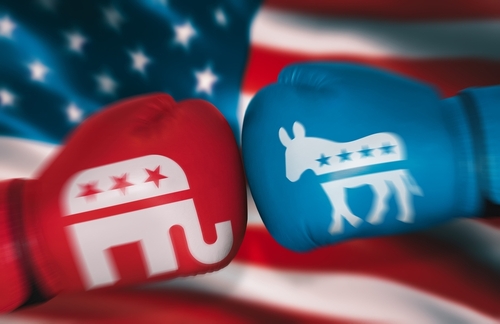
New Jersey Congressman Bill Pascrell has recently drawn significant attention for his assertive and often provocative social media activity. Known for his unfiltered opinions and direct engagement with critics, Pascrell has earned the reputation of being one of the angriest members of Congress on social media. His posts frequently feature sharp critiques of political opponents and forceful advocacy for his policy positions, a style that has both supporters and detractors.
From a Republican perspective, Pascrell's aggressive tactics are seen as counterproductive, contributing to the already polarized political climate. Many Republicans argue for a more measured and respectful approach to public discourse, emphasizing the importance of fostering constructive dialogue and bipartisanship. They believe that Pascrell's confrontational style undermines efforts to achieve legislative compromise and exacerbates partisan divisions.
Good morning. Republican donald trump is a convicted criminal. pic.twitter.com/wVr8L2JGgZ
— Bill Pascrell, Jr. 🇺🇸🇺🇦 (@BillPascrell) June 24, 2024
Despite the controversy, Pascrell remains unapologetic about his style, insisting that his forthrightness is necessary to effectively communicate his views and hold his opponents accountable. His supporters admire his willingness to speak candidly and challenge the status quo, viewing him as a champion for progressive values and a vocal critic of what he perceives as injustices.
Pascrell's approach to social media reflects a broader trend among some politicians who use digital platforms to bypass traditional media and engage directly with the public. This direct engagement allows them to control their messaging and mobilize supporters, but it also carries risks. The unfiltered nature of social media can lead to heated exchanges and controversies that may distract from substantive policy discussions.
If you haven’t seen it before here is convicted felon donald trump saying he wants you to lose your job and the economy to collapse because he thinks it will help him pic.twitter.com/XkLS7Og6zF
— Bill Pascrell, Jr. 🇺🇸🇺🇦 (@BillPascrell) June 21, 2024
The debate over Pascrell's social media conduct underscores the challenges that lawmakers face in balancing transparency and professionalism in their digital interactions. As public figures continue to navigate this complex landscape, the need for responsible and respectful communication remains paramount. Lawmakers must consider how their online behavior impacts public perception and their ability to effectively govern.
Pascrell's critics argue that his social media activity often crosses the line into incivility, damaging the integrity of political discourse. They call for a return to more traditional, respectful forms of communication that prioritize dialogue and understanding over confrontation. In contrast, Pascrell and his supporters argue that in a time of intense political division, strong and unapologetic advocacy is necessary to push for change and hold those in power accountable.
As the political landscape continues to evolve, the actions and communications of public officials like Bill Pascrell will remain under close scrutiny. Their differing styles offer insights into the varied strategies employed by politicians to connect with constituents and influence public opinion.
Moving forward, it will be essential for lawmakers to find a balance that allows for passionate advocacy while maintaining the decorum and professionalism expected of public servants.











